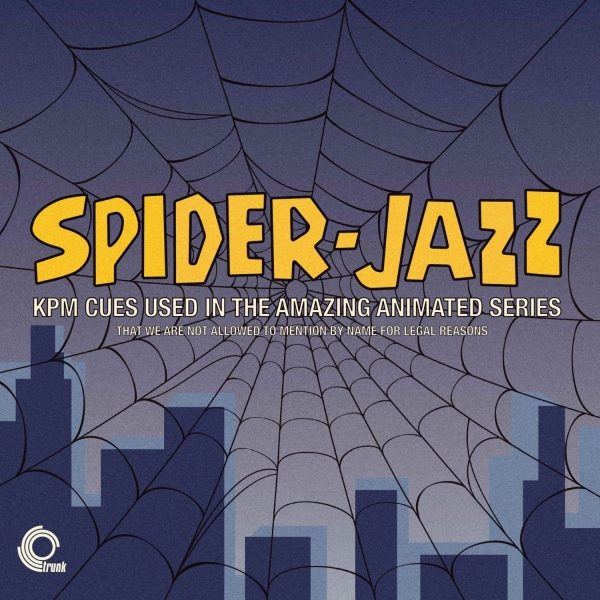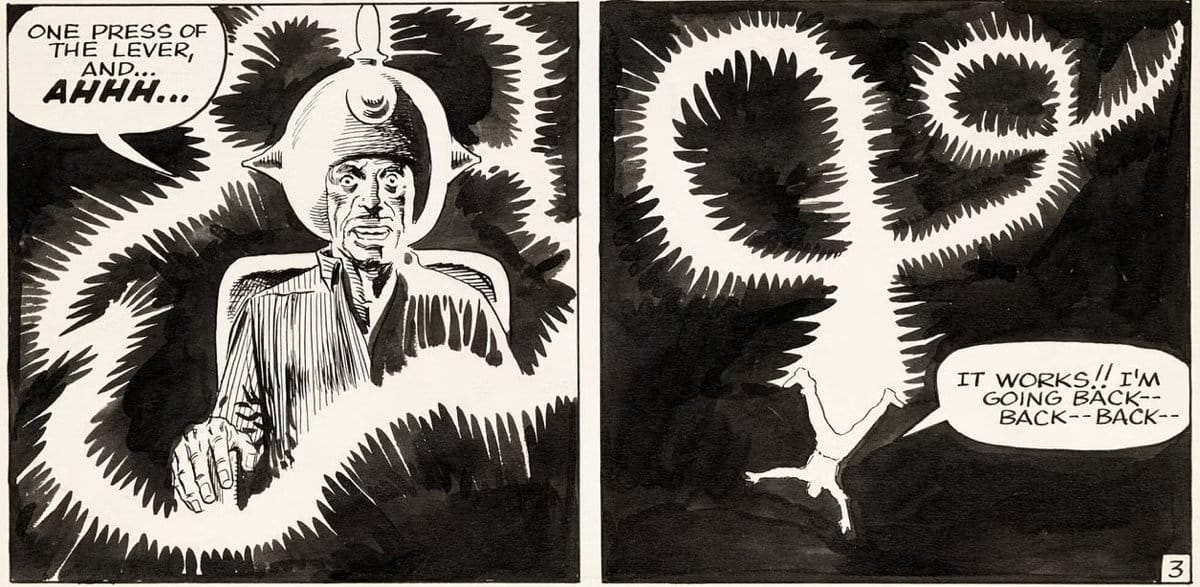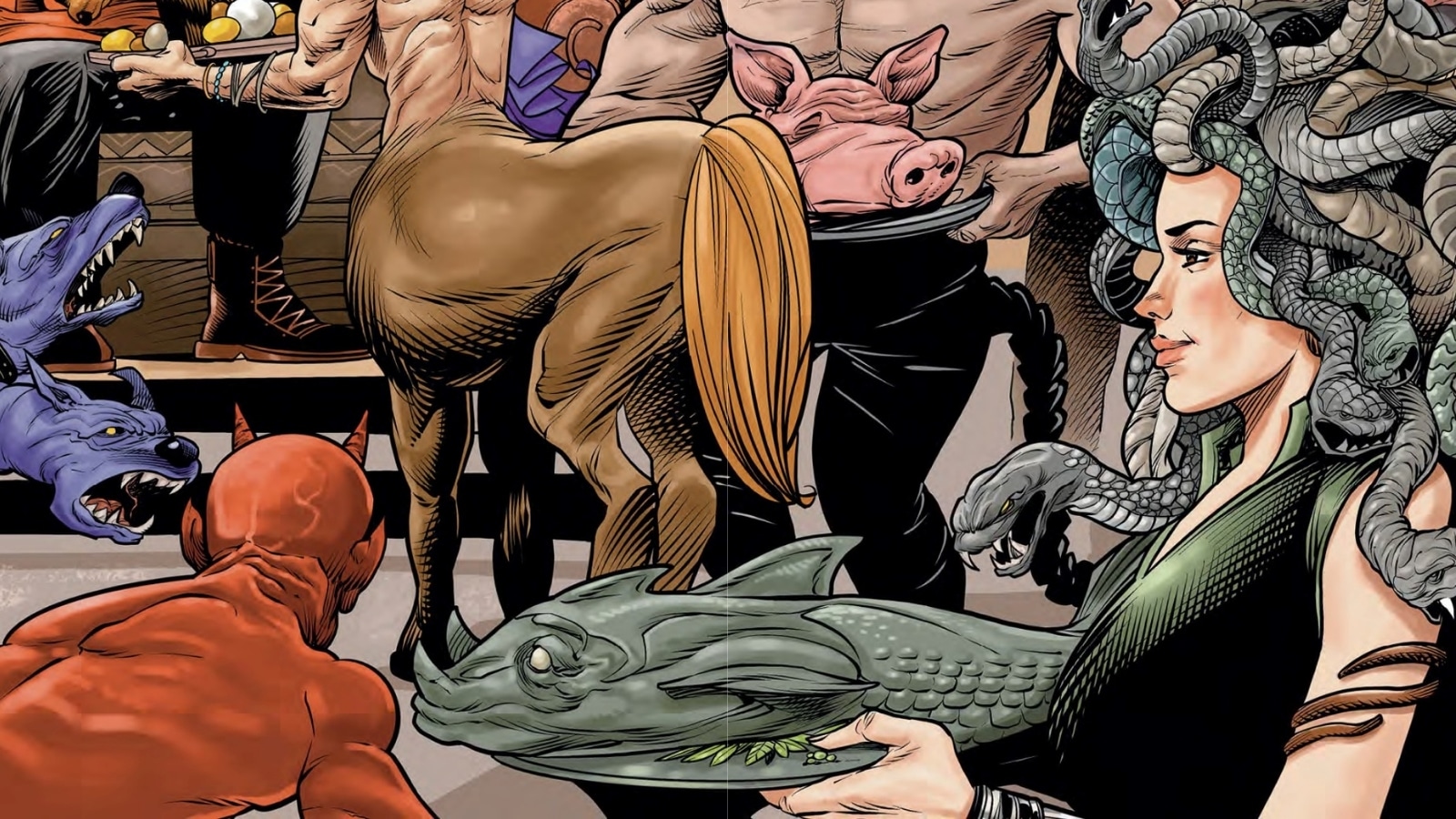For all the whining by old guys about how the kids these days don’t discover great comics through the comics themselves, but through TV and movies, I offer Exhibit A, the old Spider-Man cartoon show from the late 1960s. As a little kid, in the 60s and 70s, that was how I knew Spider-Man for a long time until, quite a few years later, I picked up a comic book, which I recall was a Giant-Size Special where he fought the Green Goblin. The cartoon show was all I knew of Spider-Man for a long time.
There’s a lot people don’t remember about that show, but one thing that has stayed in popular culture a whopping 50 years later is the theme song. Even members of Generation Z might know “Spider-Man, Spider-Man, Does whatever a spider can.” For those who watched the actual show, though, is a great memory of the OTHER music used in the show — some great crime jazz that, in our little kid minds, dominated our idea of who Spider-Man was.
Enter Trunk Records, who got the idea to put the music from the second and third seasons of the show onto a vinyl soundtrack release. It’s a new vinyl release called Spider Jazz, but for legal reasons, Trunk Records cannot actually tie its release in with the show I’ve been talking about, or even actually mention the show on the album in any way.
That’s okay, you can wink and nod and we all know what’s going on here. For these seasons, which were helmed by Ralph Bakshi, an original soundtrack was no longer part of the equation for budgetary reasons and the production turned to the KPM Library for musical needs, apart from the famous theme, and that’s what this album contains.
Because of the cartoon, I always thought of Spider-Man in hardcore urban terms, and that’s what the music evokes. Lots of horns striking out, with ruminating organs and rapid percussion that implies chases down dark alleys, and fuzz guitars evoking fear, caution, confrontation.
And so Spider Jazz is a wonderful slice of superhero history, and fun listen back at the way the genre used to be presented to a wider audience on television. The term “branding” didn’t even exist back then I don’t think, and so something like this is part of the free-for-all on the cheap that such projects were realized through. If it offers something less cohesive than what modern fans are used to, less controlled by a central authority crafting each aspect of the presentation for commercial viability and to evoke not mood but brand, then this music is certainly better for it. The choices here speak to a scrappiness that is often missing from 21st Century entertainment of all stripes.
The fact that I was listening to this music as part of the Spider-Man experience at such a young age reveals a lot to me about how my ear was trained as a kid, and it also seems innovative to me. Superheroes back then were presented with a certain of establishment stodginess, and whenever they crossed into younger tastes, it was with an air of squareness. There’s something freewheeling about the Spider-Man music, though. Even if it was culled out of library music for economic purposes, there’s a modern, groovy feel to it that doesn’t feel entirely affected. This is the appropriate audio backdrop for an urban webslinger.
The album is populated by multiple composers who had their own known careers beyond the work they were doing for KPM. Syd Dale’s music still pops up on SpongeBob Squarepants and Episodes, and he’s been sampled by Eazy-E. Johnny Hawksworth’s music has also popped up in SpongeBob, as does David Lindup’s. Bill Martin and Phil Coulter wrote numerous pop hits at the time, including the Bay City Rollers’ “Saturday Night.” Coulter has produced Sinead O’Conner. Keith Mansfield’s music has been used by Quinten Tarantino in films and sampled by Danger Mouse and Fatboy Slim.
Standouts on the album include: Dale’s surf crime dance number “The Hell Raisers”; Hawksworth’s fuzz guitar crime creeper, “The Eyelash”; Martin and Coulter’s trippy psychedelic piece “L.S.D.,” with its frantic, cascading organ work; and “Stand By,” Lindup’s rambling, bass-driven jazz caper theme.
But the whole album is a delight from start to finish, adding grit to the exploits of Peter Parker’s other self, but maybe even your own as your face your personal Dr. Octopus with some help from Peter’s inner razzamatazz. If anything, it’s an opportunity to engulf yourself in the sounds of the less-corporate, more down-to-earth Spider-Man that used to exist swinging along skyscrapers in the 1960s.
SPIDER JAZZ TRACKLISTING
Side One
1. The Hell Raisers – Syd Dale
2. The Eyelash – Johnny Hawksworth
3. Walk In A Nightmare – Syd Dale
4. Beat Street – Johnny Hawksworth
5. Walk And Talk – Syd Dale
6. Big Bass Guitar – Bill Martin / Phil Coulter
7. Mr. Chestertons Dog – Bill Martin / Phil Coulter
8. Mods & Rockers – Bill Martin / Phil Coulter
9. L.S.D. – Bill Martin / Phil Coulter
Side Two
1. Stand By – David Lindup
2. Take A Goosie Gander – Syd Dale
3. Juggernaut – David Lindup
4. Grand Prix – Johnny Pearson
5. Veiled Threat – David Lindup
6. Sixth Sense – David Lindup
7. Funky Flight – Keith Mansfield
8. Raver – Alan Hawkshaw
9. The Washington Affair – Syd Dale









Yum! That sounds fun – can’t wait to check it out. Your description reminds me a tad of that 60s Batman cartoon soundtrack recorded with Sun Ra and some of his players under a pseudonym. Jazzy good times
Syd Dale’s Hell Raisers will always be Something Weird Video to me.
Comments are closed.